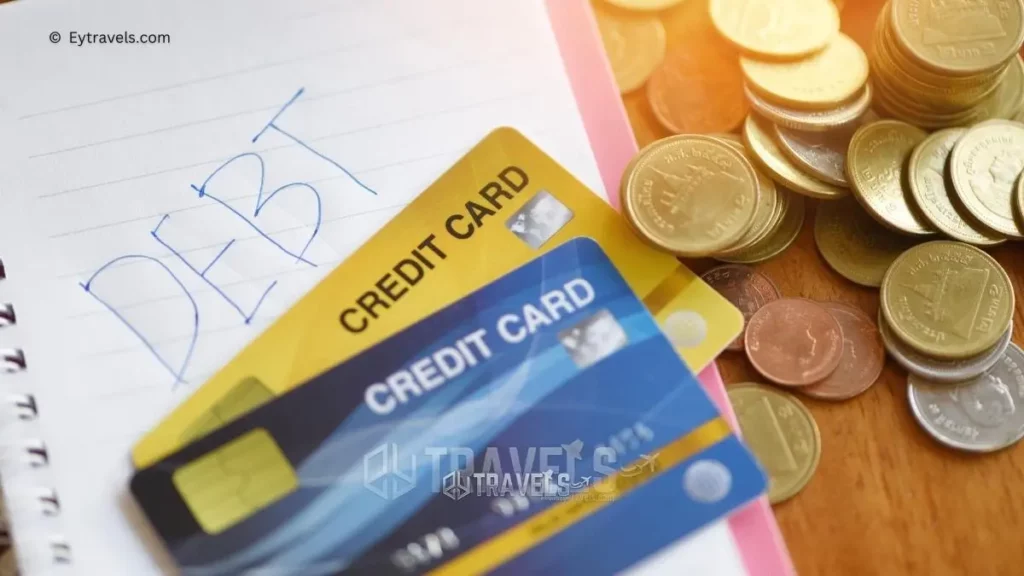Money Management 101: The Basics of Personal Finance
The topic of personal finance can be overwhelming and confusing, especially if you’re new to it. However, your effective money management is crucial to achieving your financial goals and ensuring a stable future. Whether you’re looking to save up for a down payment on a house, pay off debt, or build an emergency fund, having a solid understanding of the basics of personal finance is essential.
In this blog post, we will cover the fundamentals of money management, including budgeting, saving, investing, and debt management. By following these simple tips and guidelines, you can take control of your finances and start working towards a more secure financial future. So, let’s get started with Money Management 101!
Table Of Contents
- The importance of personal finance management
- The key elements & Basics of personal finance
- Budgeting basics
- How to create a budget plan
- Tracking your expenses
- Savings and emergency funds
- Building an emergency fund
- Investing in your future
- Retirement planning tips
- Managing debt
- Credit card management
- Paying off debt
- Protecting your finances
- Insurance and how it can help
- Tips for staying financially healthy
- Final Thoughts
The importance of personal finance management
Personal finance management is a crucial aspect of everyone's life, regardless of age or income level. It is the foundation for achieving financial security and stability in the long run. Personal finance management involves the proper management of one's income, expenses, and investments.
The importance of personal finance management cannot be overstated. It allows individuals to have a clear understanding of their financial situation, which in turn helps them make informed decisions about their money. Effective money management can help individuals achieve financial goals such as buying a house, retiring comfortably, or starting a business.
Personal finance management also helps individuals avoid debt and financial stress. By creating a budget, individuals can track their expenses and ensure that they are not spending more than they are earning. This helps them avoid falling into debt and financial hardship. In addition, having a financial plan and sticking to it can help individuals better manage unexpected expenses such as medical bills or car repairs.
In summary, personal finance management is crucial for achieving financial security and stability. By managing their income, expenses, and investments effectively, individuals can achieve their financial goals, avoid debt and financial stress, and plan for unexpected expenses.
The key elements & Basics of personal finance
Personal finance is the process of managing your money in a way that helps you achieve your financial goals. The key elements of personal finance include creating a budget, managing debt, saving for the future, and investing wisely.
Creating a budget is the first step in managing your personal finances. A budget is a plan that helps you track your income and expenses. It allows you to see where your money is going and helps you make informed decisions about your spending.
Managing debt is also an important element of personal finance. This involves understanding how much debt you have, creating a plan to pay it off, and avoiding taking on new debt whenever possible. Saving for the future is another important part of personal finance. This includes setting aside money for emergencies, creating a savings plan for major purchases, and saving for retirement.
Investing wisely is the final key element of personal finance. Investing can help you grow your money over time, but it also involves risk. It's important to understand the different types of investments and to create a diversified portfolio that matches your risk tolerance and financial goals. By following these basic principles of personal finance, you can take control of your money and achieve your financial goals.
Budgeting basics
Budgeting is a critical aspect of personal finance. It involves creating a plan for your income and expenses, allowing you to make informed decisions about your finances and avoid overspending. The first step in creating a budget is to calculate your monthly income. This includes your salary, any additional income streams, and any government benefits you may receive. Once you have a clear understanding of your monthly income, you can begin to allocate funds to different categories such as housing, transportation, groceries, and entertainment.
It's important to be realistic when setting your budget. Don't underestimate your expenses or overestimate your income. Take the time to review your spending habits and identify areas where you can cut back. This could include reducing your restaurant spending, cutting out subscription services you don't use, or purchasing generic brands at the grocery store.
Tracking your spending is also critical to successful budgeting. This can be done using a spreadsheet, budgeting app, or even just a pen and paper. By tracking your spending, you can identify areas where you might be overspending and adjust your budget accordingly.
Remember, a budget is not set in stone. It's important to review and adjust your budget regularly to reflect changes in your income or expenses. By sticking to your budget and making adjustments when necessary, you can take control of your finances and work towards achieving your financial goals.
How to create a budget plan
Creating a budget plan is a fundamental step in managing your personal finance. It gives you a clear understanding of how much money is coming in and going out every month. To create a budget plan, start by listing all your sources of income, such as your salary, freelance work, rental income, or any other source of income you have. Next, list all your expenses, including fixed expenses, such as rent or mortgage payments, utilities, and insurance, and variable expenses like groceries, entertainment, and transportation costs.
Once you have listed your income and expenses, it's time to compare the two. This will give you an idea of whether you are living within your means or if you need to make some adjustments. If your expenses are higher than your income, you'll need to cut back on some expenses or look for ways to increase your income.
To create a realistic budget plan, it's important to be honest with yourself and your spending habits. One of the ways to ensure that you stick to your budget plan is to set realistic goals. For instance, if you want to save money, set a specific amount you want to save each month and work towards it. Also, make sure to track your expenses regularly and adjust your budget plan as needed.
Creating a budget plan may seem daunting at first, but it's a necessary step in taking control of your finances. It helps you to prioritize your spending, stay on top of bills, and save for your future.
Tracking your expenses
Tracking your expenses is an essential step towards effective money management. It is important to keep track of what you are spending your money on, and how much you are spending. This will help you in creating a budget and sticking to it.
There are various ways to track your expenses, such as using a spreadsheet, a budgeting app, or a notebook. Whatever method you choose, make sure to record all your expenses, including small purchases such as coffee or snacks.
When tracking your expenses, it is also important to categorize them. This will help you understand where your money is going and where you can cut back. For instance, you may realize that you are spending a lot of money on dining out, and decide to cook more meals at home to save money.
Another benefit of tracking your expenses is that it allows you to identify any unnecessary spending. Once you identify these expenses, you can work on eliminating them and redirecting that money towards your financial goals.
Overall, tracking your expenses is a simple yet effective way to take control of your finances. By doing so, you can create a realistic budget, save money, and work towards achieving your financial goals.
Savings and emergency funds
One of the most important aspects of personal finance is building up savings and emergency funds. Having money set aside for emergencies can help you avoid taking on debt when unexpected expenses arise. It's advisable to strive for having an emergency fund that covers your living expenses for a minimum of three to six months.
When it comes to savings, it's important to have a plan in place. Set a specific goal for how much you want to save each month, and make it a priority to stick to that goal. This could be a certain percentage of your income, or a set dollar amount. Automating your savings can also be helpful – have a portion of your paycheck directly deposited into a savings account.
There are many different types of savings accounts available, including traditional savings accounts, high-yield savings accounts, and certificates of deposit (CDs). Consider your financial goals and choose a savings account that aligns with them.
It's also important to regularly reassess your emergency fund and savings goals. As your financial situation changes, you may need to adjust your savings and emergency fund contributions to ensure that you are still on track to meet your goals. By prioritizing savings and emergency funds, you are setting yourself up for financial stability and security in the long run.
Building an emergency fund
Building an emergency fund is one of the most important things you can do for your personal finance. An emergency fund is a sum of money set aside to cover unexpected expenses, such as medical bills, car repairs, or home repairs. These expenses can quickly add up and having an emergency fund can help prevent them from causing financial strain.

Financial experts suggest having at least three to six months' worth of living expenses set aside in an emergency fund. This amount may seem daunting, but it's important to start small and work your way up. Even saving a small amount each month can add up over time.
When building an emergency fund, it's important to keep the money separate from your regular checking or savings account. This not only helps to prevent the temptation of spending the money on non-emergency expenses but also allows for easier tracking of the fund's growth.
Consider setting up automatic transfers from your checking account into your emergency fund to make saving easier and more consistent. Another option is to consider a high-yield savings account to earn interest on your emergency fund savings.
Remember, emergencies can happen at any time, so it's important to be prepared. Building an emergency fund is a key step towards achieving financial stability and peace of mind.
Investing in your future
Investing in your future is essential, and it's never too early or late to start. The earlier you start investing, the more time your money has to grow, and the more you'll benefit from the power of compounding interest.
There are many types of investments, including stocks, bonds, mutual funds, real estate, and more. Each type of investment carries its own risks and rewards, so it's important to do your research and seek out professional advice before deciding where to invest your money.
One simple way to start investing is to contribute to a retirement account such as a 401(k), IRA, or Roth IRA. These accounts provide advantageous tax benefits while also enabling your funds to flourish over time. Many employers offer matching contributions to 401(k) plans, which is essentially free money for your future.
Another option is to invest in low-cost index funds, which are a type of mutual fund that tracks a specific market index, such as the S&P 500. These funds offer broad diversification and low fees, making them a popular choice for many investors.
Ultimately, the key to successful investing is to have a long-term mindset and a balanced portfolio that aligns with your financial goals and risk tolerance. By investing in your future, you can achieve financial security and independence, and enjoy the fruits of your labor for years to come.
Retirement planning tips
Retirement planning is an essential part of personal finance that is often overlooked. However, planning for your retirement now will save you from financial struggles in your golden years. Here are a few tips to help you plan for your retirement:
- 1. Start early: The earlier you start saving for retirement, the better. By starting early, you give your money more time to grow and compound.
- 2. Set realistic goals: Determine how much you need to save for retirement and set realistic goals based on your income and expenses.
- 3. Take advantage of employer-sponsored plans: If your employer offers a retirement plan such as a 401(k), take advantage of it. Employer contributions and tax benefits can significantly boost your retirement savings.
- 4. Consider other retirement savings options: If your employer does not offer a retirement plan, consider other options such as an IRA or a Roth IRA.
- 5. Be mindful of the fees: Fees can eat away at your retirement savings. Be mindful of the fees associated with your retirement accounts and investment options.
- 6. Monitor your investments: Keep an eye on your retirement investments and make adjustments as needed. As you get closer to retirement age, consider shifting your investments to more conservative options.
Planning for retirement may seem daunting, but it is a crucial part of personal finance. By following these tips and making retirement planning a priority, you can achieve financial security in your golden years.
Managing debt
Managing debt is crucial to achieving financial stability. If you have outstanding debts, it's important to prioritize paying them off as soon as possible. Start by making a list of all your debts, including credit card balances, loans, and any other outstanding balances. Once you have a clear idea of your total debt, you can create a plan to pay it off.

One popular method is the debt snowball method, where you start by paying off your smallest debt first and then move on to the next smallest, and so on. This method can help you build momentum and stay motivated as you see your debts gradually decreasing.
Another important aspect of managing debt is avoiding high-interest debt. Credit cards can be a major source of high-interest debt, so it's important to use them responsibly and pay off the balance in full each month if possible. If you have a high-interest credit card balance, consider transferring it to a card with a lower interest rate or taking out a personal loan with a lower interest rate to consolidate your debts.
Overall, the key to managing debt is to stay organized, make a plan, and take action. By prioritizing debt repayment and avoiding high-interest debt, you can reduce your financial stress and work towards a more stable financial future.
Credit card management
Credit cards can be a useful tool for managing personal finances, but they can also lead to debt if not managed properly. One of the most important aspects of credit card management is paying the balance in full each month to avoid interest charges. This can be achieved by keeping track of purchases and setting reminders to make payments on time.

It's also important to choose a credit card with rewards or perks that align with your spending habits. For example, if you frequently travel, a credit card with travel rewards may be a good option. However, if you don't travel often, a cashback credit card may be more beneficial.
Another important aspect of credit card management is keeping a low credit utilization ratio, which is the amount of credit used compared to the total credit available. A high utilization ratio can negatively impact credit scores, so it's important to keep it below 30%.
Finally, it's important to be aware of any fees associated with credit cards, such as annual fees, late fees, and balance transfer fees. These fees can add up quickly and impact personal finances, so it's important to choose a credit card with low or no fees and to avoid making late payments. By managing credit cards effectively, personal finances can be improved and debt can be avoided.
Paying off debt
Paying off debt is a crucial aspect of personal finance, and it's essential to have a plan in place to tackle it. The first step is to know how much debt you have. This includes any credit card balances, car loans, student loans, or any other outstanding debts that you have.
Once you have a clear picture of your outstanding debts, you can make a plan to pay them off. One strategy is to start with the debt that has the highest interest rate, as it will cost you the most money in the long run. You can allocate more funds towards paying off this debt while making minimum payments on the others.

Another effective strategy is the debt snowball method. This involves paying off the smallest debt first and then moving onto the next smallest debt. This approach can provide a sense of accomplishment and motivation as you see debts disappearing one by one.
It's also important to look for ways to reduce your expenses and increase your income to allocate more funds towards debt repayment. This could mean cutting back on unnecessary expenses, finding ways to earn extra income, or negotiating bills and expenses to lower your monthly payments.
Remember, paying off debt takes time and effort, but the benefits of being debt-free are worth it. You'll have more disposable income, less financial stress, and be able to focus on reaching your financial goals.
Protecting your finances
Protecting your finances is a critical part of personal finance. You work hard to earn your money, so it's important to safeguard it. There are several ways to protect your finances, and the first one is to have adequate insurance coverage. This includes insurance for your home, car, health, and life.
Another way to protect your finances is to monitor your credit report regularly. You can get a free credit report from the three major credit bureaus once a year. Review your credit report to make sure there are no errors, and if you do find any errors, dispute them right away.
It's also important to have an emergency fund. An emergency fund is a savings account that you can tap into when unexpected expenses arise. Ideally, you should have enough money in your emergency fund to cover three to six months of living expenses.
Protecting your finances also means being vigilant against scams and frauds. Scammers are always looking for ways to separate you from your money, so it's important to be aware of the latest scams and how to avoid them. Don't give out personal information to anyone you don't know, and be wary of emails or phone calls that ask for personal information.
Lastly, protecting your finances means being proactive about your financial health. This means setting financial goals, creating a budget, and sticking to it. It also means investing for the future and planning for retirement. By taking these steps, you can ensure that your finances are protected and that you're on the path to achieving your financial goals.
Insurance and how it can help
Insurance is an essential part of personal finance planning, as it can protect you and your family against unexpected events and financial risks. It helps you avoid financial losses due to accidents, illness, loss of property, and other unforeseen circumstances, which can be very expensive to deal with.
There are different types of insurance policies available in the market, such as life insurance, health insurance, car insurance, homeowner's insurance, and disability insurance. Each type of insurance serves a specific purpose, and it's important to evaluate your needs and choose the most suitable policy for you and your family.
For example, life insurance can provide financial protection to your family in case of your sudden demise, while health insurance can cover your medical expenses and protect your savings from being drained due to unexpected medical bills. Car insurance protects you from financial losses in case of accidents or theft, and homeowner's insurance protects your property from damage or loss due to fire, theft, or natural disasters.
In addition to protecting you from financial risks, insurance can also give you peace of mind and help you sleep better at night, knowing that you and your family are financially secure. However, it's important to understand the terms and conditions of your policy, including the coverage, premiums, deductibles, and exclusions, to make sure you get the best value for your money.
Tips for staying financially healthy

Staying financially healthy is important for everyone, regardless of their income or background. Here are some tips to help you stay in good financial shape:
- 1. Create a budget: This is the foundation of good money management. Create a budget that is realistic and takes into account all your expenses, including bills, groceries, entertainment, and savings. Keep track of your spending and adjust your budget as needed.
- 2. Pay yourself first: Make saving a priority by setting aside a portion of your income each month. This can be for an emergency fund, retirement, or any other long-term goal.
- 3. Avoid debt: Try to avoid unnecessary debt, such as credit card debt or loans for things you don't really need. If you do need to take out a loan, make sure you can afford the payments and pay it off as quickly as possible.
- 4. Be mindful of your spending: Before making a purchase, ask yourself if it is something you really need or just want. Consider waiting a few days before making a big purchase to see if it is something you truly want to spend your money on.
- 5. Use credit cards wisely: If you do use credit cards, be sure to pay them off in full each month and avoid carrying a balance. Look for cards with low interest rates and rewards programs that can benefit you.
By following these tips, you can stay financially healthy and build a strong foundation for your future. Remember, good money management starts with small steps and consistent effort.
Final Thoughts
We hope you found our article on money management helpful. Whether you're just starting out or looking to improve your financial situation, understanding the basics of personal finance is crucial. By following the tips and advice we provided in this article, you can take control of your finances and start making better financial decisions.
Keep in mind that achieving financial stability is a continuous journey, not a final destination. Keep working towards your goals, and you'll be amazed at how far you can go! Best of luck on your financial journey.






